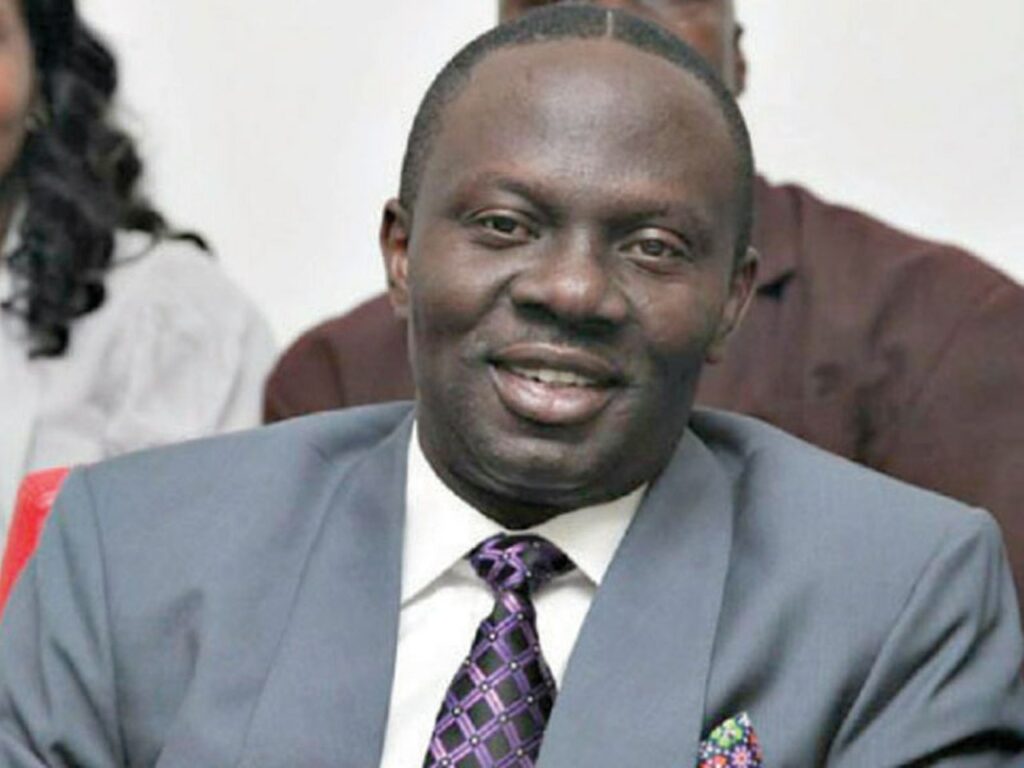Minister of Works and Housing, Babatunde Fashola, has reiterated the urgent need to redesign and rehabilitate medical school infrastructure to enhance quality healthcare delivery in Nigeria.
Fashola made the remarks at the 7th Felix Oladejo Dosekun Memorial Lecture, organised by the College of Medicine, University of Lagos (CMUL) on Thursday.
The theme of the lecture is: “Medical Education in Nigeria; The Challenges of Infrastructural Decay”.

The News Agency of Nigeria (NAN) reports that Late Prof. Felix Dosekun was the first Vice-Dean, University of Lagos Medical School.
He was also the first Deputy Provost, College of Medicine as well as the first emeritus professor of the university.
According to the minister, infrastructure should not get to a state of total collapse or decay before steps are taken to maintain them.
“We need to ask ourselves how we can replace and expand the decayed health infrastructures in the medical schools.
“No matter the quality of infrastructure, if people do not use it properly, it will not last.
“Our focus is to redesign medical schools that will improve our public health and preventive health, especially epidemiology area, because of the outbreak of infectious disease or viruses.
“We should have a different approach about how to prevent or slow down the decay or depreciation of health infrastructures,’’ NAN quotes Fashola as saying.
The minister, who was the guest lecturer at the event, added that every infrastructure has a life span, whether it was the road, bridge, airport or buildings.
“The Federal Ministry of Works has been intervening in the road network leading to tertiary institutions in Nigeria.
“Also, we are rehabilitating some federal secretariats at the zones, ministries departments and agencies.
“We should know that infrastructure wares out thoroughly over time; it is a reality we must deal with and, therefore, it is not a challenge but the essence of our existence.’’
Fashola urged the alumni of the college to contribute to the maintenance of medical school infrastructure while government should also strive to improve funding of the colleges.
The provost of the college, Prof. Adewale Oke, said that the college had made giant strides in the pursuit of excellence in medical education and biomedical research, in line with the legacy of the late Prof. Dosekun.
Oke said that the MBBS/BDS curriculum had since been reviewed by the Medical Education Development Unit (MEDU).
“We now have the student-centred, problem-based, community-oriented, electives and systematic (SPICCES) curriculum.
“This curriculum, which is in line with global best practice, has impacted positively on the quality of medical and dental students, the college is now training.
“We are proud to have students, who can compete with their counterparts globally,’’ Oke said.
He added that sustaining the standard of medical education and biomedical research in the college, required that existing infrastructure be maintained and new ones acquired.
“During Prof. Dosekun’s tenure as provost, he initiated some development projects.
“At that time, owing to the autonomy of the college, funds were released to the college directly from the government.
“I appeal to the Lagos State Government to help us evacuate wastes and widen the drainage on Ishaga and Ojerinde roads toward Ilasamaja.
“This will save us from the incessant flood which regularly hinders our activities, particularly when it rains,’’ the provost said.
Also speaking, Prof. Osaretin Ebuehi, Chairman of the Organising Committee, said that Dosekun was an exceptional man, who worked tirelessly for the growth and development of the college.
Ebuehi, also the Deputy Provost of the CMUL, noted that the late professor, who was fondly referred to as the Doyen of Physiology, was one of the founding fathers of medical education in Nigeria.
“He displayed exceptional and robust leadership as well as a commitment that cannot be equated with no others in the history of the college,’’ he said. (NAN)




